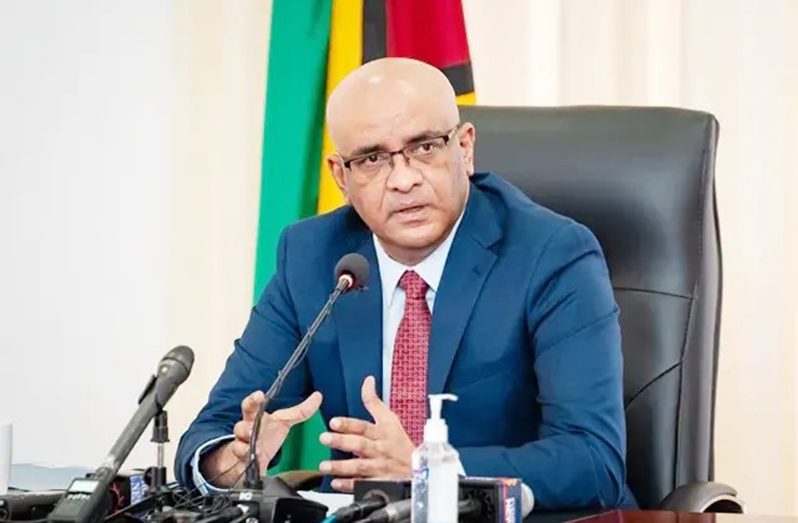–Vice-President Jagdeo says
DEVELOPING countries across the world depend on adaptation financing to mitigate the effects brought on by climate change, but those funds are not being released in a timely manner, Vice-President Dr. Bharrat Jagdeo has said.
Speaking on the sidelines of the ongoing United Nations Climate Change Conference/Conference of the Parties of the UNFCCC (COP 28) in Dubai, Guyana’s Vice-President told BBC News that the funding to support developing counties is “not at scale”.
The Guyanese leader further said that many countries have not been able to fully access and utilise the funds from the climate adaptation fund.
According to Dr. Jagdeo, some $30 billion was raised to support developing countries, however, in the past ten years, just about $2.3 billion was disbursed to support climate adaptation initiatives.
“We believe that the adaptation money is not at scale, and the process of intermediation has been too to slow,” Dr. Jagdeo said, adding: “We believe that putting loss and damage funds through the World Bank will cause a sloth. The World Bank is not intermediating these funds at the pace they are needed in the developing world.”
GUYANA’S ADAPTATION EFFORTS
Meanwhile, Guyana has been able to generate its own finances to support climate adaptation.
Back in 2009, the country had launched the first Low-carbon Development Strategy (LCDS) from a developing country, setting out a vision for inclusive, sustainable development, while simultaneously maintaining the country’s forests.
This saw the country signing its first deal, where it was able to earn some US$250 million to keep its forest intact.
This further paved the way for the country to tap into the carbon-credit market, thereby allowing it to earn money for the carbon dioxide trapped by its standing forest.
Just recently, the country was awarded the Architecture for REDD+ Transactions (ART) issued the world’s first TREES credits to Guyana.
This marked a milestone, as it was the first time a country was issued carbon credits specifically designed for the voluntary and compliance carbon markets for successfully preventing forest loss and degradation, a process known as jurisdictional REDD+. Following this, Guyana was able to enter into an agreement to sell its carbon credits.
“In our case, 100 per cent of all the money we earn for forest, 85 per cent of it will go to adaptation measures, and 15 per cent will go to indigenous people. We have 242 Amerindian villages, and they’ve already received 15 per cent of the funds, and they are now implementing 500 projects from those funds,” Dr. Jagdeo said.












